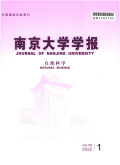南京大学学报(自然科学版)2024,Vol.60Issue(1):76-86,11.DOI:10.13232/j.cnki.jnju.2024.01.008
知识情境感知的深度知识追踪模型
Knowledge context-aware deep knowledge tracing model
摘要
Abstract
Knowledge tracing aims to track learners'cognitive states dynamically and predict their future performance based on their historical response data.However,existing knowledge tracking models usually only utilize the knowledge concepts representing the test without considering the critical knowledge contextual features contained in the test itself,which limits the effect of the model.Moreover,compared to cognitive diagnosis methods that incorporate educational priors,the interpretability of knowledge-tracing models is inadequate.This paper proposes a knowledge context-aware deep knowledge tracing model to address these issues.The model includes a knowledge context representation module to capture deep-level knowledge weights,question difficulty,and other contextual features.In the knowledge aggregation module,the model embeds the knowledge weights into the computation of learners'abilities toward specific questions.Lastly,in the learning prediction model,the factors of guess and error are introduced,and the predictive performance in real-world scenarios is optimized through a cognitive diagnosis model to further improve the model's predictive performance.Compared to existing methods,the model proposed in this paper achieves better prediction results at the question level and demonstrates advantages in model interpretability.关键词
知识追踪/知识情境感知/知识权重/试题难度/认知状态Key words
knowledge tracing/knowledge context-aware/knowledge weight/question difficulty/cognitive state分类
信息技术与安全科学引用本文复制引用
蒲杰,张所娟,陈卫卫..知识情境感知的深度知识追踪模型[J].南京大学学报(自然科学版),2024,60(1):76-86,11.基金项目
国家自然科学基金(62207031),全国教育科学国防军事教育学科"十四五"规划研究课题(JYKY-D2022013) (62207031)

